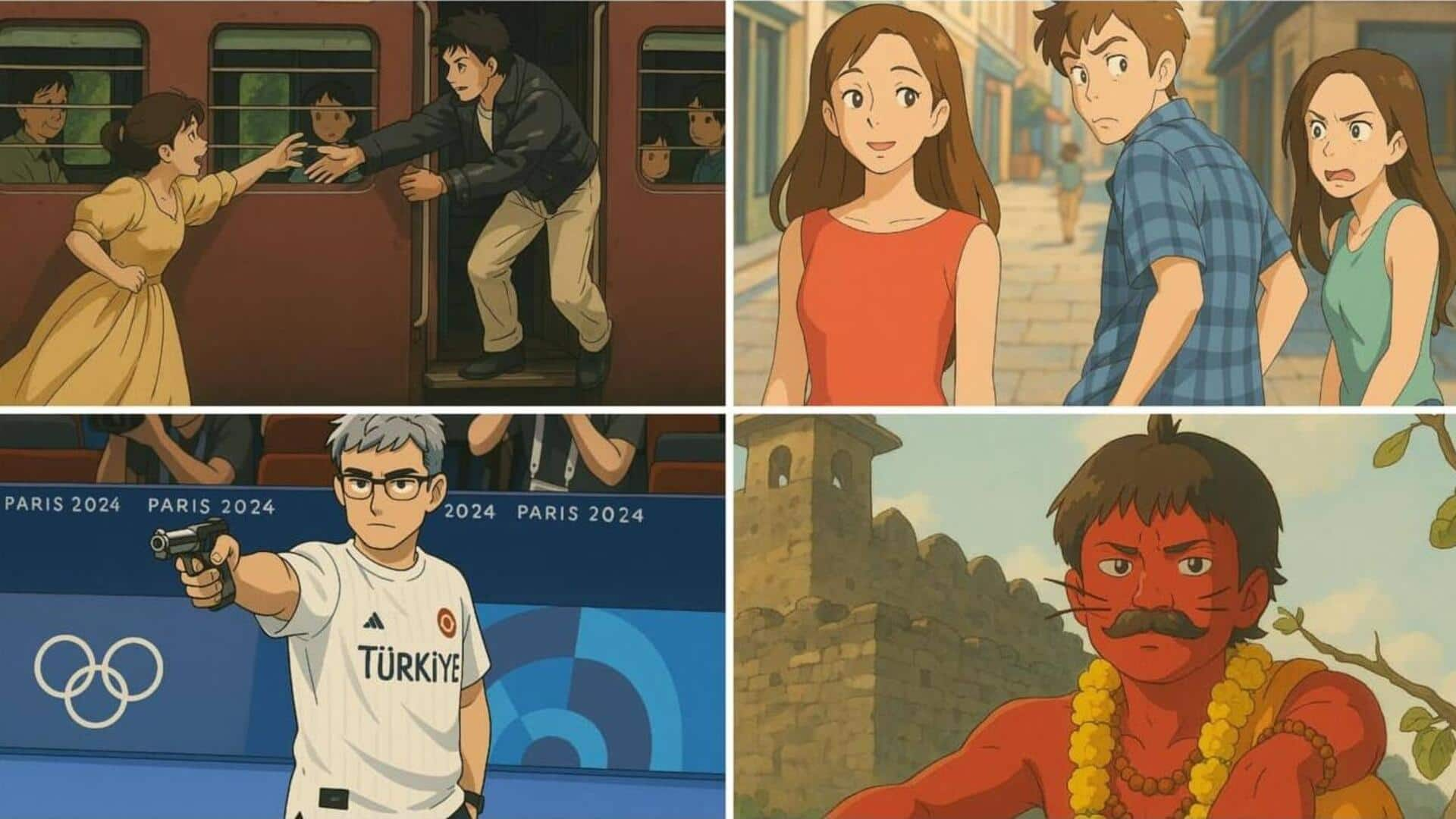
ChatGPT turns your photos into Ghibli art—But is it legal?
What's the story
OpenAI's ChatGPT has demonstrated a new artistic capability, generating images in the distinctive style of Japan's renowned Studio Ghibli.
Social media platforms have been abuzz with examples of these AI-created visuals, depicting various scenes and characters reminiscent of beloved animated films like My Neighbor Totoro and Spirited Away.
However, ChatGPT's latest capability has also sparked ethical concerns over AI tools likely being trained on copyrighted creative works and their potential effect on the future livelihoods of human artists.
User experiences
Ghibli-inspired images continuing to dominate social media
ChatGPT's capability to replicate Studio Ghibli's signature soft lines, rich backgrounds, and whimsical characters has captivated users.
By simply uploading an image or entering a text prompt, anyone (currently, paid users of ChatGPT) can generate Ghibli-style art in seconds.
The ease of this process has fueled the trend, with Ghibli-fied images continuing to dominate social media while also 'melting' OpenAI's GPUs.
But the key question is: What data did ChatGPT train on to achieve Studio Ghibli's intricate style?
Legal concerns
Legal implications of Ghibli-style AI art
The legal landscape surrounding AI-generated art remains complex. Experts suggest that using AI to replicate the styles of established artists or studios without consent could constitute copyright infringement.
Josh Weigensberg, a partner at law firm Pryor Cashman, said while "style" can't be copyrighted, specific elements of an artwork could infringe copyright laws if too similar to the original.
It is still uncertain whether OpenAI trained ChatGPT using Studio Ghibli's work and, if so, whether it obtained permission to do so.
OpenAI's stance
OpenAI encourages 'Ghiblification' experiments amid copyright lawsuits
OpenAI has shown support for these "Ghiblification" experiments, with CEO Sam Altman even updating his profile picture on X to a Ghibli-style portrait.
As per the company, the new tool takes a "conservative approach" when replicating individual artists' aesthetics.
OpenAI said that it has implemented a refusal system to prevent users from generating images in the style of living artists.
But it noted that broader studio styles are permitted, allowing users to create and share original fan-inspired works.
Artist's lawsuit
Artist sues AI image generators for copyright infringement
Artist Karla Ortiz, who grew up watching Studio Ghibli creator Hayao Miyazaki's films, is suing other AI image generators for copyright infringement.
She sees OpenAI's creation of Ghibli-style images as another example of how artists' work, and their livelihoods, are disregarded.
Ortiz was especially upset when the White House's official X account used a Ghibli-style image in a meme trend involving a Dominican Republic woman arrested by US immigration agents.
Artist concerns
Miyazaki's skepticism toward AI in animation resurfaces
Miyazaki (84), famous for his hand-drawn style and unconventional storytelling, has previously been skeptical of AI's role in animation.
In 2016, he was "utterly disgusted" by an AI demonstration that showed a body dragging itself by its head.
"Whoever creates this stuff has no idea what pain is," he said, refusing to incorporate AI technology into his work. "I strongly feel that this is an insult to life itself."